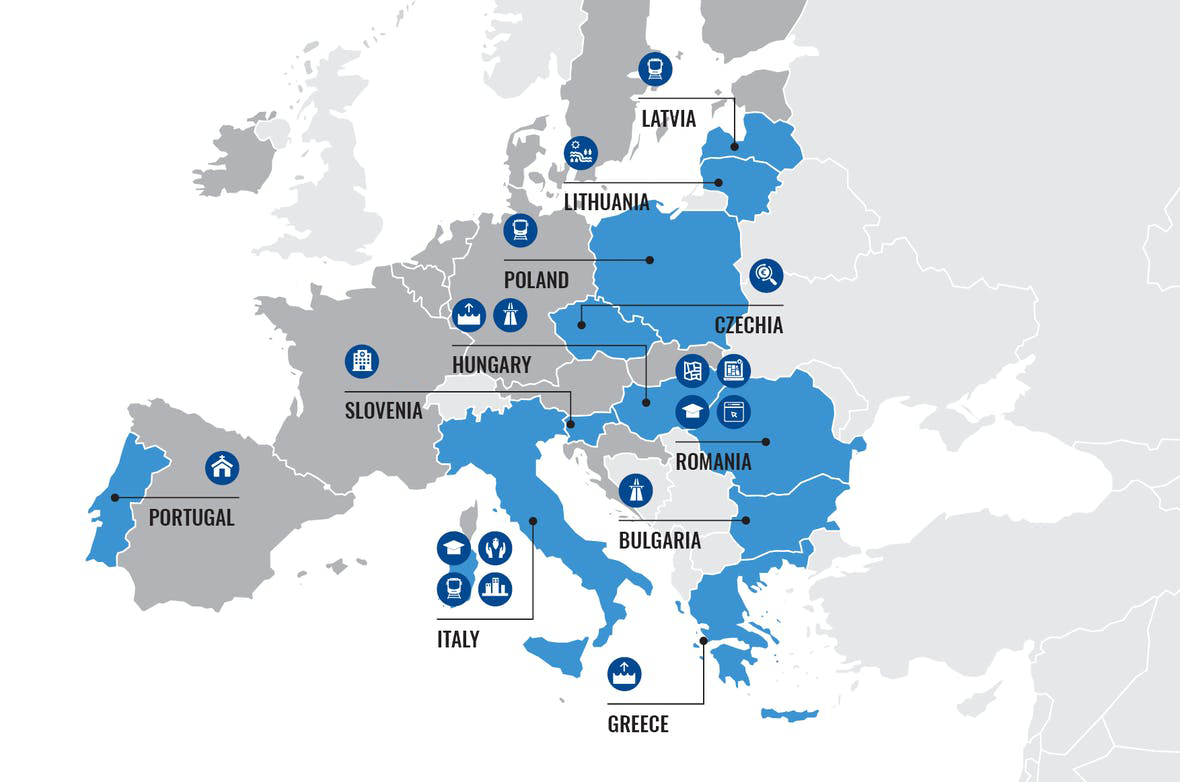The European Commission aims to ensure more transparent and corruption-free use of Structural Funds and Cohesion Fund. The civil society plays a central role thanks to the the Integrity Pacts. Corruption causes serious harm to economic development and the society as a whole. In its efforts to tackle fraud and corruption in EU-funded projects as well as to improve transparency and efficiency in public procurement procedures, the European Commission teamed up with Transparency International (TI) i
- 16 January 2017

The European Commission aims to ensure more transparent and corruption-free use of Structural Funds and Cohesion Fund. The civil society plays a central role thanks to the the Integrity Pacts.
Corruption causes serious harm to economic development and the society as a whole. In its efforts to tackle fraud and corruption in EU-funded projects as well as to improve transparency and efficiency in public procurement procedures, the European Commission teamed up with Transparency International (TI) in promoting the Integrity Pacts – A Civil Control Mechanism for Safeguarding EU Funds. The first concrete results are already there.
The implementation of the second phase of the pilot project launched by the Commissioner for Regional Policy Corina Creţu in March 2015 is already in full gear. More than €7 million for a 4 year period were made available to support the implementation of 17 Integrity Pacts for projects co-financed by the Structural Funds (European Regional Development Fund and European Social Fund) and the Cohesion Fund in 11 Member States: Bulgaria, Czech Republic, Greece, Hungary, Lithuania, Latvia, Slovenia, Portugal, Romania, Italy and Portugal.
So far, nine integrity pacts have been signed. The first was the one covering the implementation of a project for the design and building of what will be Bulgaria's longest tunnel: the Zheleznitsa Tunnel. In Italy TI will monitor the construction of the "Cagliari city rail" in Sardinia and projects of technical assistance for employment, education and training in the Lombardy Region. In the Czech Republic, an Integrity Pact was signed for the creation of the online platform of the monitoring system for the programming period 2014-2020, MS2014. On 26 October in Hungary, TI Hungary launched a pact for the construction of the M6 motorway between Boly-Ivandarda and the country's border, where Transparency International will monitor every phase of the public procurement process of the construction of the motorway section, including the preparation and the execution of the contract, as well as the legality and the transparency of the process. In Poland the Stefan Batory Foundation signed an Integrity Pact agreement with Polish Railways for monitoring of "Works on the railway line No. 1 on the section Częstochowa – Zawiercie". In Slovenia, TI Slovenia will monitor a project regarding energy renovation of hospitals, while in Latvia an integrity pact was signed with the capital's municipal transport company Rigas Satiksme for monitoring the construction of new tram line in Riga. The latest IP has been signed on 29 December 2016 in Italy where ActionAid will monitor the implementation of "Development of Museum and Archaeological Park of Sybaris" in Calabria Region.
Integrity Pacts ensure efficient and transparent processes in the handling of EU taxpayers' money. The project also emphasizes the role of civil society in the fight against corruption, within the aim of making sure that Member States make the most of the available funding. Cohesion Funds represent for many states the main source of public investment, with as much as 60% of government capital expenditure and it is fundamental for these to be safeguarded against abuses. All actors involved in implementation of Cohesion Policy have their role to play. Civil society as an effective anti-corruption actor can give their valuable input in promoting transparency, social accountability, good governance and restraining corruption.
What matters most in the integrity pact is collaboration between the actors involved. Their successful implementation requires joint efforts from all. We are extremely happy that so many Member States expressed their willingness to take part in this large scale pilot. Through increased transparency and accountability, enhanced trust in public authorities and better reputation, as well as improved competition, the society as a whole is to benefit in the long term.
The added value of the initiative has already been recognised by the people involved. For instance, Ernesto Porcu, responsible for the technical services at ARST SpA, the municipal company beneficiary of the Cagliari city train project, draws the conclusion that "the cooperation with Transparency International Italy in the context of the Integrity Pact has guaranteed that the quality of the project would be the guiding principle in the procurement process. Thanks to the Integrity Pact we also received invaluable assistance and guidance in understanding the sometimes quite complex legislation requirements. We hope that with the help of the Integrity Pact we will able to successfully implement the project with the participation of all main actors – ARST, the Regional and Municipal Authorities and Transparency International. This is something we are extremely proud of."
Given this positive feedback so far, the Commission is confident that we will achieve the objective of fostering a culture of public demand for accountability in the allocation and disbursement of public funds by ensuring transparency and engaging citizens in monitoring of public procurement procedures.
